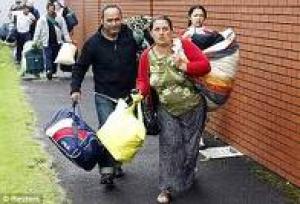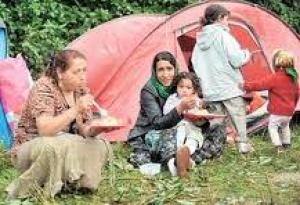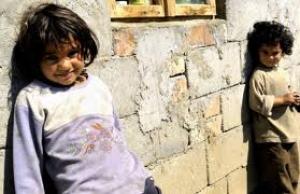21 March – International Day against Discrimination
 Discrimination has become an increasing problem in today’s society. We live in a globalised world where the media holds great sway and broadcasts images and situations that generate conflicts: immigration, displacement of peoples, unemployment, homosexuality, poverty and the situation of people living in reduced circumstances. Discrimination has become an increasing problem in today’s society. We live in a globalised world where the media holds great sway and broadcasts images and situations that generate conflicts: immigration, displacement of peoples, unemployment, homosexuality, poverty and the situation of people living in reduced circumstances.
Globalisation has opened us up to many realities, facilitated many economic, cultural and social exchanges but it has not helped us to be open to difference. All these realities portrayed in the mass media have, little by little, reduced our ability to develop judgement, a critical stance; we have been prevented from considering these problems in depth. Without our realising it we become prejudiced and this makes it difficult for us to be open, to listen to and welcome others.
 We need to look at these problems in specific situations. The problem of immigration for example must be looked at from several points of view. We must begin with ourselves first of all. Discrimination sometimes begins in our hearts. When we see a person who is different from ourselves – feels differently, carries out a task in a different way, then we often cultivate negative attitudes within ourselves in relation to that person to such an extent that we discriminate against the person and even in some cases exclude him or her. We need to look at these problems in specific situations. The problem of immigration for example must be looked at from several points of view. We must begin with ourselves first of all. Discrimination sometimes begins in our hearts. When we see a person who is different from ourselves – feels differently, carries out a task in a different way, then we often cultivate negative attitudes within ourselves in relation to that person to such an extent that we discriminate against the person and even in some cases exclude him or her.
The first step we need to take is not to allow ourselves to be influenced by these inner attitudes. Then we will give others their rightful place, creating links that unite us and thus seeing the world as a community that is diverse yet complementary
When we make this inner journey, we become aware of the mistaken ideas that we have of others who are different from us. This inner journey commits us all at many different levels.
This International Day is a call, not just at social, religious or moral levels but also at the deeply human level, where we are aware of the innate dignity of the human person and the respect due to all. This demands a change of mentality: the “other” does not inspire fear, lack of trust or frustration in me; on the contrary, if I welcome the other as an equal with the same rights and duties, then I am laying the foundations of a new society.
In the last few months, I experienced a rather delicate and difficult situation in a camp where there were Rumanian immigrants. The situation was very abusive. There was a young woman with six children and pregnant with another child. She asked me to help her obtain an abortion in the local medical clinic.

For many of these women, abortion is used routinely as a form of contraception. I did not fully understand this woman’s situation. After a third meeting with her I became aware that she was having difficulty coming to a decision about this abortion since she had had an abortion two years previously. I became aware that I had prejudices and negative reactions towards her. I tried not to listen to these interior voices which were preventing me from seeing the real problem. As I listened to her I knew that I did not agree with her decision to abort her child. But I respected her right to make a free choice. As I left her house, I was aware of great sadness in me and great compassion for this young mother of 29 years of age who had not the support of a husband, who had just recently come out of prison.
Some days afterwards, the woman called me by phone to tell me that she “had chosen life” and with great joy and relief, she asked me to find her a baby’s cot and baby clothes for her seventh child. I told her not to be afraid but to trust in God.
I gave time to this young woman to reflect more deeply on her situation, leaving her free to make her own decision and as a result she felt serene and happy as a woman and as a mother. This experience helped me to understand that others can perceive our interior attitudes, whatever they are – of openness and welcome or hostility and distance. This perception enables them to make choices that foster their realisation as persons. I felt full of joy - an almost maternal joy as I reflect on my experience with this young mother.
Olga Sacoccio
Community of Montenevoso
Roma
| 


